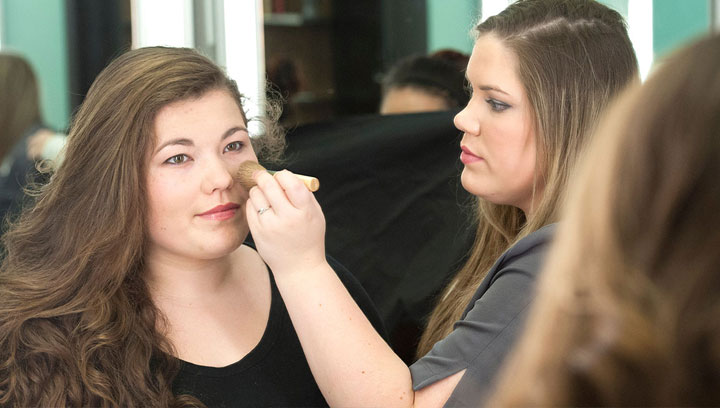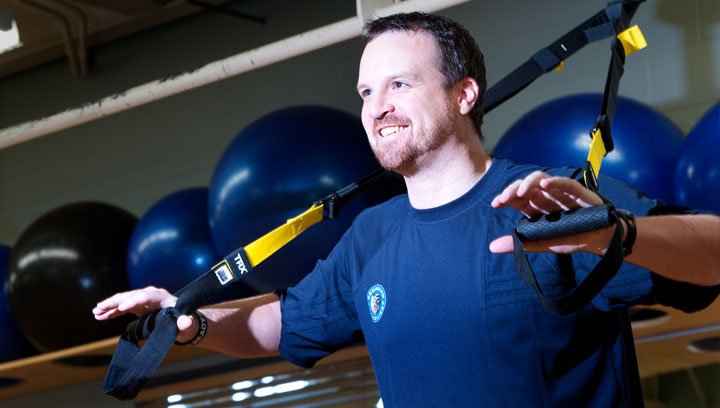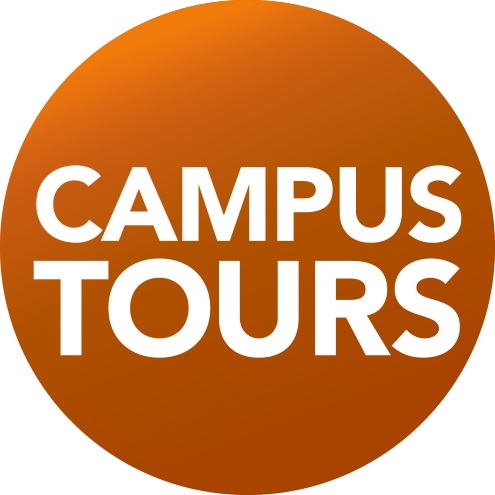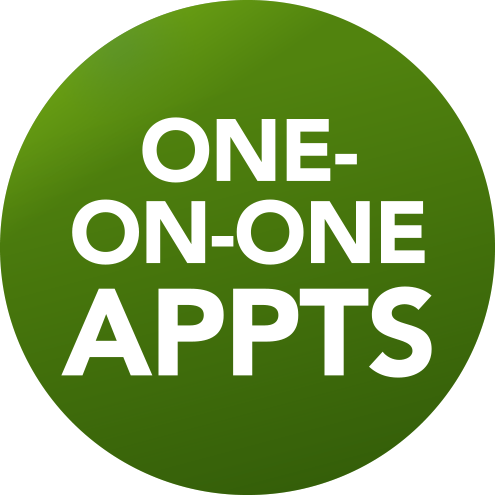
Turn your passion for helping others into a career in speech therapy
Communicative Disorders Assistant Ontario College Graduate Certificate program
Study physiological and functional speech/language and hearing disorders. Learn techniques to help others communicate. On-site clinic for hands-on learning.
Program information
Program description
As a student in the CDA program, you gain knowledge and hands-on experience to work in an adjunctive capacity as supportive personnel to qualified Speech-Language Pathologists and/or Audiologists in a variety of treatment settings, including virtual care. Students focus on conducting programming after the Speech-Language Pathologist or the Audiologist has completed the assessment and determined the therapy plan. Students gain clinical experience in our on-site speech, hearing and language clinic and during the placement semester.
Based on a thorough understanding of physiological and functional speech/language and hearing conditions, students develop programming skills and learn intervention techniques to elicit and sustain communication behaviours. In addition, students identify behaviour and environmental factors that can potentially support or erode the efficacy of therapy.
Intake information
| Start date | Campus |
|---|---|
| Fall 2025 | Barrie |
Tuition and fees
- Visit our tuition and fees page for detailed information on the cost to attend Georgian.
- You can afford this! Explore OSAP as well as awards, scholarships and bursaries to help you pay your way to graduation.
Work-integrated learning
- This program includes a field placement component where you’ll gain hands-on experience in a setting relevant to your program.
- Learn about types of work-integrated learning at Georgian.
What are the admission requirements for the Communicative Disorders Assistant program?
Communicative Disorders Assistant admission requirements
Ontario College Diploma, Ontario College Advanced Diploma, Degree or equivalent with a specialty in communication disorders, linguistics, human anatomy and physiology, social sciences, or human services curricula.
Selection Process
Applicants with a diploma or degree outside the specialty listed above will be considered if they have volunteer and/or work experience in a clinical setting with a speech-language pathologist, audiologist and/or communicative disorders assistant.
This is a highly competitive program. Applicants will be assessed and ranked based on academic grades. The overall minimum GPA is determined annually.
Additional information
Prior to the commencement of client contact, students must have proof of completed TB and vulnerable sector screening.
In addition to these requirements, applicants must also provide proof of a current standard First Aid, C.P.R. BLS certification, and verification of immunization as outlined on the clinical preparedness permit prior to the commencement semester 2.
Certain clinical placements will require students to have updated flu shots, Hepatitis B vaccination, additional site specific vaccination as well as a Vulnerable Sector Screening Police Record Check including a check of the Pardoned Sex Offender Database.
It is the student’s responsibility to ensure their eligibility to participate in clinical placements. The College assumes no responsibility for these matters and students should be aware that tuition will not be refunded in the event that access to a placement is denied.
Information about placement requirements
To help you navigate the requirements to complete the clinical placement component(s) of this program (e.g. immunization, First Aid and CPR, criminal record screening and other non-academic requirements), please review the details below.
For more information about placements, visit the Placement Offices webpage.
In order to provide quality practicum placements (“Placements”), students are placed in a variety of agencies, largely in the region serviced by the campus. Students are required to provide their own transportation to Placements. Placements may vary in length (e.g. six to 12 hour days) and may include weekends and evenings, with varying start and end times (e.g. day, afternoon, overnight).
Many programs, including Health and Wellness, have immunization, First Aid and CPR, criminal record screening and other non-academic requirements that need to be met prior to Placements starting. You are responsible for carefully reviewing and meeting these requirements. The failure to meet them may mean that the host agency may refuse to accept you for a Placement or, if you have started one, that you may be prevented from continuing. The result may be that you cannot complete your program. Program-specific requirements can be found on page 2 of the Clinical Preparedness Permit specific to your program.
You are responsible for meeting all immunization, criminal screening and other requirements by the deadline provided by your program and before you start your Placement.
Notes regarding the Criminal Record Check (“CRC”) and Vulnerable Sector Screening (VSS)
Individuals who have been charged or convicted criminally and not yet pardoned or who have adverse entries on their CRC or VSS will be prohibited from proceeding to a Placement. Such a student will normally be counselled to withdraw from the program because the successful completion of a Placement is a program requirement.
Obtaining the CRC and VSS usually requires a processing time of up to 12 weeks and can vary between police jurisdictions. As some jurisdictions require longer lead time for processing, ensure you allow for sufficient turn-around time. Record checks and screenings conducted earlier than six months may not be considered current and not be acceptable. Refer to your Clinical Preparedness Permit for information regarding this. A host agency may refuse a Placement if the CRC or VSS is not satisfactory to it. It is the student’s responsibility to provide the necessary completed documents prior to the start of a Placement at the designated check time, and in the format set by Georgian College and stated in the Clinical Preparedness Permit Information Package. More information can be found on the Placement Offices webpage.
The costs associated with the provision of the CRC and VSS, anything related to them (including, if applicable, obtaining a pardon), and meeting any immunization and other Placement requirements, are to be borne by the student. The non-academic requirements of clinical agencies as described in the Clinical Preparedness Permit are subject to change at any time and host agencies may accept or decline students for any reason at their discretion. Georgian College is not responsible for any of the costs associated with the foregoing, nor for the consequences of failing to comply with, any of the requirements set out above.
What career paths can I take as a communicative disorders assistant?
Your Communicative Disorders Assistant graduate certificate gives you many career opportunities
Graduates of this program are prepared for employment as supportive personnel serving children and adults with complex communication needs. Graduates may find work in a variety of settings including children’s treatment centres, school boards, public health units, hospitals, and private speech and/or audiology clinics.
Why study Communicative Disorders Assistant at Georgian?
Experiential learning
One of the key features of our program is that our students complete clinic rotations in both fall and summer semesters in the Harmonize for Speech, Hearing and Language Clinic. This clinic offers state-of-the-art equipment and training that enables students to observe and participate in speech-language and audiological treatment sessions and programming involving community clients. In total, students complete 56 hours of clinic placements and 490 hours in two separate seven-week field practicum placements.
Experienced faculty
Our highly qualified faculty members are well known for their experience, and their ability to work with students to put theory into practice.

What courses are included in the Communicative Disorders Assistant graduate certificate program?
Course overview
15 Program Courses
2 Field Placements
Program-specific courses
Semester 1 courses are listed below. For a full list of courses in the program including course descriptions, view the Communicative Disorders Assistant program outline.
- CODA 1000 – Speech Sound Disorders
- CODA 1002 – Child Language Development and Intervention Supports
- CODA 1003 – Introduction to The Communicative Disorders Assistant Profession
- CODA 1004 – Introduction to Augmentative and Alternative Communication
- CODA 1006 – Introduction to Communication Disorders in Adults
- CODA 1021 – Introduction to Audiology
- CODA 1022 – Introduction to Clinical Theory
- CODA 1023 – Introduction to Clinical Practice
Your course delivery method(s)
In person
This program is delivered fully in person and requires you to attend campus.
Please note, delivery methods are based on planning for the upcoming semester and are subject to change.
Check out our other related programs
Addictions: Treatment and Prevention
Motivate people to change! Unique cutting-edge courses and interactive counselling labs. Be in demand by employers in many fields.
Child and Youth Care
Practise your skills in our interactive simulation labs. Cutting-edge community placements. Graduate job-ready or pursue further studies.
Esthetician
Amazing facilities! Work in on-site clinic with real clients. Organic/green products. Develop your professional skills. CIDESCO-certified.
Occupational Therapist Assistant and Physiotherapist Assistant
Become a dual-trained clinician. Placements in a variety of settings will prepare you for a rewarding career in health care.
Do you have questions about Communicative Disorders Assistant? Contact us!
Thinking about applying to Georgian?
Contact our student recruitment team to explore your study options.
Already applied to Georgian?
Connect with the Office of the Registrar for admissions-related questions.
Are you an international student?
Contact our international recruitment team to learn more about studying at Georgian.
Ways to connect
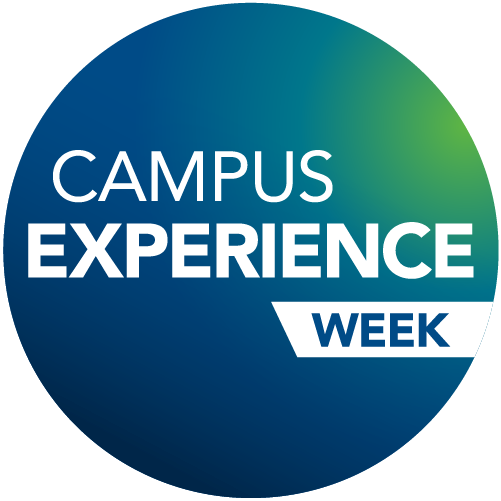
Get ready for Campus Experience Week from April 11 to 17 happening at all Georgian campuses!
Learn more and RSVP.
Take a guided, in-person tour
of our campuses.
Book a campus tour.
Book a phone appointment
with a recruitment specialist.
Connect with a recruiter.
Join our email list for event updates, contest information and more.
Sign up for Georgian updates.



